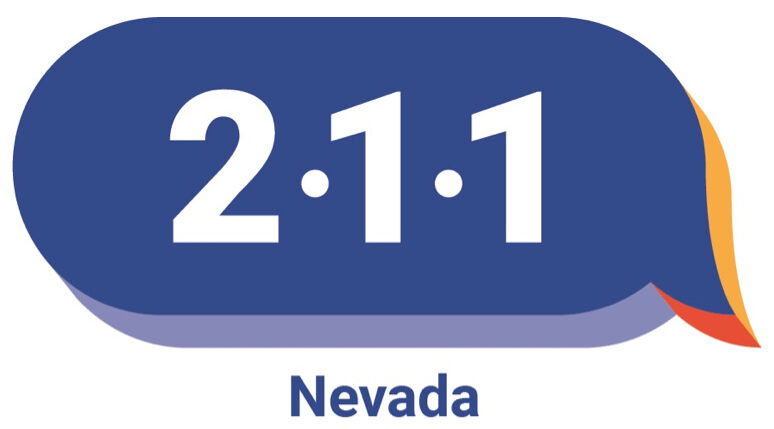11 Feb I would agree with you but then we would both be wrong
Motivation Thursdays with Mrs. Samuels
 How do you talk to people you disagree with? Do you avoid conflict all together and never share your own thoughts? Do you argue until the others involved give up?
How do you talk to people you disagree with? Do you avoid conflict all together and never share your own thoughts? Do you argue until the others involved give up?
Do you become sarcastic and condescending? Or do you “agree to disagree” and then spend the next two days ruminating over the unresolved conflict?
Talking with someone we disagree with can be a nightmare for a lot of us. Tensions escalate quickly, especially in times of uncertainty. In our present climate, many of us are experiencing a breakdown in our ability to communicate effectively. When these channels of communication fail, it can represent a significant loss to our relationships, leadership, our families, and our communities.
How can we overcome such deep polarization?
Melody Stanford Martin posted an article this week in Psychology Today discussing ways to improve conversations with people or groups with whom we disagree with. Why does this matter? Ms. Martin shares that disagreement is a natural part of life. It can either be healthy or unhealthy. If we seek to protect relationships and strengthen our communities instead of allowing them to be torn apart, we should prioritize healthier disagreement. Below are Ms. Martin’s tips for “healthier disagreements.”
1) DO: Tell people they matter
Before anything else, make sure you reinforce your relationship with the person. Saying things like, “Before I say anything else, I want to make sure you know that I respect you” or “I want to appreciate your perspective” goes a long way. Instead of walking into a conversation ready for a fight, which immediately puts everyone in earshot on the defensive. It’s a big glowing reminder that our humanity is determined by how we treat each other, not by how much we agree.
2) DON’T: Let frustration overcome you. Channel it.
It’s hard to stay calm when people are saying things you strongly oppose. It can be tempting, and even cathartic in the moment, to blow up at them. Our goals in difficult conversations should generally be to 1) Protect the relationship with that person, and 2) to increase your understanding and increase the chances that you will be understood. If you don’t slow down and pause, you risk putting the entire relationship in jeopardy. You might lose any credibility or trust that you have been working to build.
3) DO: Acknowledge fears under the surface
In my book, I argue that all conflict has some kind of fear at its core. Humans generally want to live and not die. We want to be free and not controlled. We fear chaos and seek meaning and order. It’s important to recognize which fears are driving someone’s belief structure.
• Fear of being unintelligent?
• Fear of being seen as incapable?
• Fear of losing power or authority?
4) DON’T: Assume the worst
The vast majority of us want to be good. We want to fight for the best possible world and do the right thing. We may have different visions of how to get there, but it’s important to assume someone means well until we have definitive proof that they don’t. Try to make a point to say things like:
• “I can see where you are coming from.”
• “You make a good point.”
• “I can see you have good intentions.”
What does this accomplish? It shows our conversation partner that we aren’t hellbent on attacking them just because they are on the “other” side. Extending goodwill is both reasonable and neighborly. It creates a spirit of collaboration. Give credit where it’s due, and someone is more likely to open up and have a real conversation.
5) DO: Share your sources
The information we use to construct and uphold our beliefs is incredibly important. Where we get this information is also important. The problem is, in the digital age, there’s a lot of convincing false or misleading information floating around in the world. Be ready for the possibility that people will critique those sources or reject their legitimacy. That’s all part of the process of social negotiation and healthy disagreement. If your sources are legitimate, they should have no problem holding up under scrutiny.
6) DON’T: Launch verbal grenades
Some words can be perceived as emotionally aggressive and create the opposite effect of collaborative, productive discourse. This includes any of the following:
• Blanket statements that include the words “always” or “never”
• “Zingers,” “gotcha” moments, or clap backs — these are momentarily gratifying but may erode your relationship with the person
• Personal (ad hominem) attacks
• Labels that people have not adopted themselves
If we really want to be credible and trusted during a disagreement, if we want to maximize our impact and understanding, we will take caution.
7) DO: Show you understand, even if you don’t agree
We can’t play basketball if we don’t know what actions constitute a violation or a foul, right?
The same is true when we disagree. If we walk into a conversation and don’t take the time to actually listen and understand the nuance of what someone is saying or believing, we are playing the game without understanding the rules. Everyone wants to be heard, especially in disagreements. Not being heard, or having our words twisted, creates a lot of resentment. So, take the time to listen. And after we’ve listened, then make a point to reflect — literally, and out loud. Let them know that we listened:
• “So, if I understand you correctly…”
• “It seems like you are saying ______, is that accurate?”
• “Can I summarize what I’m understanding so far?”
8) DON’T: Use sarcasm and refrain from speaking in sound bites
Sarcasm, especially sarcasm in online conversations, can be particularly risky for discourse because we can’t hear tone. It can be hard to know when someone is being facetious. Try to say exactly what you mean and don’t crack jokes at someone’s expense. Remember, your long-term relationship with that person is more important than the present conversation. If you want to be influential with them, if you want to stay in community with them, you will seek to use direct language that doesn’t leave room for misinterpretation.
9) DON’T: Be condescending
Nobody likes a know-it-all. Seriously.
Even if you’re dripping in academic knowledge, even if you can talk circles around someone, you will alienate them the minute you act superior. Having more knowledge than someone else does not make you a better person. Ultimately, being condescending is about control: seeking to control or force someone to agree with us and implying that if they don’t, they’re bad or stupid.
10) DO: Teach and be teachable
Good teachers are patient, gracious, and give people the space to discover things at their own pace. They don’t get mad at someone for not knowing something. Importantly, good teachers don’t mistake “uninformed” for “stupid.” Smart people can believe untrue or misleading ideas, and it doesn’t make them less smart. It means they might have gaps in their understanding or unreliable sources. Intelligence and education are different; remember not to confuse the two.
Be teachable, too. When we’re speaking to a peer, it goes a long way to allow ourselves to be challenged. Saying things like “I never thought about it that way,” or “That’s new to me, I’m going to read up on that” shows that we are a co-learner. If we want to teach, we need to be open to being taught.
In conclusion: Healthy disagreement is worth the effort
It is indeed possible to have a conversation with just about anyone, on just about any topic, and not lose our nerve. As we condition our conversational muscles, remember that we can’t control other people. We can’t decide who must agree with us, when, or to what extent. But we can build bridges instead of bonfires.
**These skills should be applied to ALL relationships, not just in the workplace. If you think you are an effective communicator and handle disagreements flawlessly, I suggest you put out an anonymous survey…you might be surprised with the results. Effective communication is a lifelong practice.
Cheers to a better understanding in conflict resolution!
Amanda Samuels, LMFT
Other Motivation Thursdays Articles by Mrs. Samuels
• 5 Habits That High Achievers Should Break
• “I’d agree with you but then we’d both be wrong.”
• “Sit with your anger long enough until it tells you its real name.”
• “Stay in your lane… if you want to come into mine, please signal your intentions.”
• “This is from Billy, not Amanda (Full Disclosure).”
• Survival Mode is part of what we go through in this life at times
• Not winning, especially if this is how the news is broken to you about your couch!
• Motivational Change vs. Behavioral Change
• “Your emotions are valid, your reaction to your emotions might not be.”


